
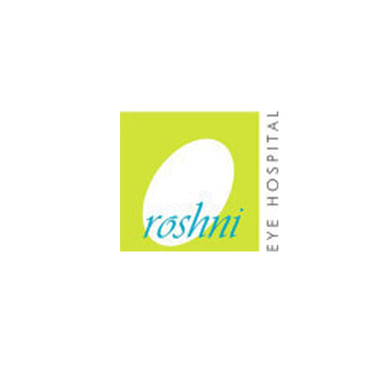
Roshni Eye Hospital
Ophthalmologist Clinic
About Clinic
Our medical care facility offers treatments from the best doctors in the field of Eye Surgeon, LASIK & Laser Eye Surgeon, Ophthalmologist.By combining excellent care with a state-of-the-ar...read more
Clinic Timing
Clinic Location
Clinic Images
Videos
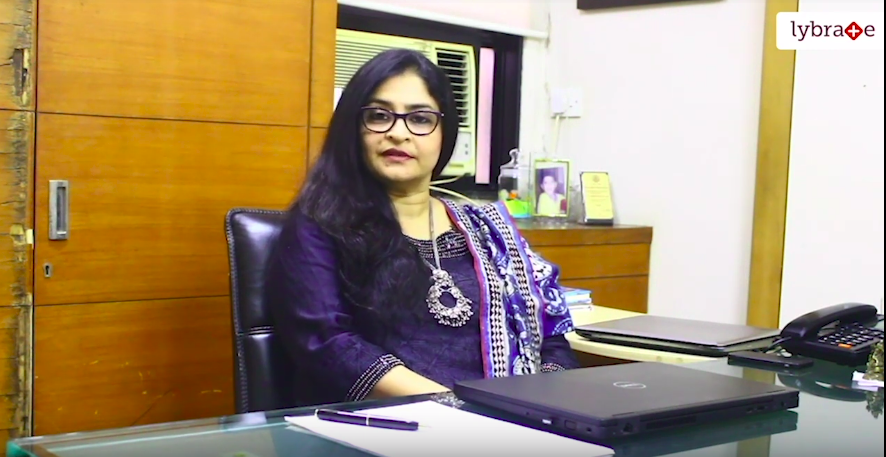
Hello,
I am Dr. Leena Doshi, Ophthalmologist. Today I will talk about digital eye strain to you. It is also called computer vision syndrome. Now, this is self-explanatory. Life is digital. It has taken over all aspects of life, work, study, including our entertainment and leisure. Everything is digital. We are making ourselves more adaptable to it. The term says digital eye strain. So, what is strain? Strain is when there are demand and your ability. Your demand exceeds the ability, there is a strain. Similarly, the visual demand of the task when it exceeds your visual activity, you get an eye strain. What is your visual ability? Visual activity is when you have a number for your glasses like farsightedness or astigmatism, well that is a need to be corrected. Or if you have presbyopia, also takes care of your visual ability. So, there has to be a balance between everything so that you should be at ease. So, what are things that should be at balance? The things are your digital device which is either a computer, TV, mobile or a tablet. The 2nd part is you yourself. ANd the 3rd one is the environment around you.
So, these things have to be in balance. So, let's talk about what should we not do so that we should not get digital eye strain. You may get a headache, strain in the eye, giddy sensation, watery or burning eyes, eyes go red, tired all the time. You just don't want to do things. You just want to close and shut your eyes. Now, what do you need to do? Now you need to take care of all these 3 things which need to be balanced. First is the environment like the room you are in. So, the weather is hot or cold, humidity, the movement of the air, AC does make the difference. If the light is too bright, it will cause you eye strain. 2nd part is your digital device. Now, what you need to do? Your skin should have a blue light. The position of your digital device. It should be little down and then your posture, you need to sit straight, hands should be straight. Legs should be perfectly aligned. Now the most important part is your eyes. Glasses should be into the correct position and number should be correct. The right color of glasses you should use. Apart from this, one exercise is 20, 20, 20. What does this mean?
You should take every 20 secs break every 20 mins. ANd look at an object which is 20 feet away. This will give you a bit of relaxation. And then you can get back to work. Because you are not the eye expert. You need to visit your Dr regularly. So that if you do have any visual disability that is what we diagnose. It has to be taken care of by the Dr. A regular eye check which will happen at the eye clinic, not any other place is what we recommend. I hope this has helped you. If you want any information, you can follow me through lybrate.com.
Thank You
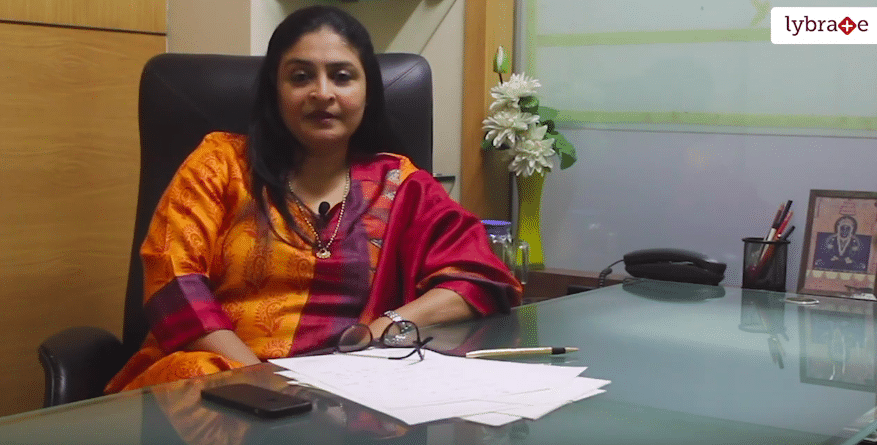
Hello,
I am doctor Leena Doshi,specialised in cataract, Lasik and glaucoma. Well today I am going to talk to you about what is a comprehensive eye check up? What do you mean by comprehensive checkup? What do you mean by vision check up? What does happen at a free eye camp and what is the difference between a free eye camp and visit to a doctor. What happens in a free eye camp usually is vision check. Now what is a vision check? Vision check is what you see on the board where you are made to read something, maybe alphabets, maybe numbers that you count and one person checks your eyeglass number that is a vision check and refraction that is normally which happens usually at a free eye camp wherein they dispense free glasses that also happens at optician shop, so what happens is only a vision check. Now what is the difference between what happens at optician, free eye camp and comprehensive eye check. So you also need to know where you have to go for comprehensive eye check. For a comprehensive eye check you do need to visit an eye doctor's clinic, so what does happen at an eye doctor's clinic? In eye doctor's clinic a comprehensive eye check is done.
Now what you mean by comprehensive eye check? comprehensive itself says a complete check. Now the eye has a lot of functions and one of its functions is to see, now what is measured in a vision check? It is just the quantitative part you can read from 1 to 10 that is the quantitative measurement of your vision so that is all that is checked in a vision check and number glass is given to you and when they cannot make you read further or you can not read the last line, they sometimes refer you back to an eye doctor, please go to an eye doctor and get your eyes checked and come because your vision is not improving. So what happens at an eye doctor is the eye is checked up completely, the eye has various parts and various functions one of the functions is to see, so quantitative vision is only measurement, now we also have quality of vision, what do you see, how clearly do you see, is it blurred, is it clear, do you see contrast, do you see colour, do you see depth, do you see the whole world as itself, do you have binocular vision, is it 3D can you see all of it, now all of this compromises quality of vision check. Now this happens at an eye doctor's place, so for a comprehensive eye check what does happens is once you go to the doctor's clinic vision is checked first. Now vision, the part of the test which was done at an optician or at free eye check is first done.
First your vision is checked because the most important function of the eye is to see, so quantitative measurement of your vision is definitely done and the best corrected vision is checked what I mean by that is the glasses that you accept and see best that is what is calculated and written on the paper, so that doctor knows that your vision cannot improve further than that with your glasses. Post that sometimes the assistant might just do further tests like eye pressure measurement check, now what is an eye pressure? Eye pressure is because of the eye is a closed cavity and it has a certain pressure, it is not your blood pressure and it is not related to your blood pressure so it has a pressure of its own which if it goes haywire does cause a lot of problems in the eye and gives a condition called glaucoma. So a basic eye pressure test is done based on your age, what systemic problems you have, so mostly people above the age of 40 do undergo an eye pressure check as well. We do muscle balance check, we do colour vision test so all these things will happen at the basic level of the assistant checking or sometimes even the doctor does that. So next what happens there is the history taking which happens with the doctor.
The doctor will talk to you about what all you have gone through, if you have any family history of systemic diseases or are you taking any medications, can you see properly, how is it that you see, what is the kind of work that you do, is it digital work, what are the postures you have, so all these things will be discussed and heard by your doctor. Post that he will test you on certain machines which is called as slit lamp microscope. It is a microscope wherein we see the entire eye in magnified view, so that we see each and every single part of the eye through that microscope, so after seeing this the doctor sometimes might just say you need a further examination of checking your numbers because your numbers are high or they are camouflaged because you are a child are you might need retinal examination because you are diabetic or you have some other long-term diseases which are there in the eye so the doctor would want to to check that.
So what he would do next that he might advise you, you will have to wait for a while your vision might go blurred and he will put some drops in your eyes so you will be sent back to the doctor's office outside the waiting room, the drops will be put maybe two to three times or four times at an interval of over 5 minutes and then the assistant is going to look at your eyes and the pupil whether it is dilated or not. Now what we mean by pupil dilation is the black colour of your eyes that portion when it opens up we can peep inside your eye, when we peep inside your eye, the eye is supposed to be called as the window to the inside world, we can see your actual blood vessels right through your eyes and that is why eye check is a must when you have diabetes, blood pressure and other systemic disorders.
So once full dilatation happens the doctor will see you again in his chamber see what it is, whatever problems you have, if you have a cataract that will be told to you, if you have raised eye pressure with some changes that will be told to you and based on whatever you have the doctor might further advise you what tests need to be done to corroborate his findings so that the diagnosis gets confirmed and if you need any management beyond that you will be asked to come back for follow up.
So this is what happens in a comprehensive check. Now the doctor might also advise you to go and see another physician maybe a physician because he might see for the first time that he is seeing some changes which are equivalent to diabetic changes or equivalent to hypertensive changes or equivalent to some raised pressures because nerves of the eyes directly connected to the brain now sometimes you have severe headaches now when there are severe headaches and you do not know what's the cause and you'll end up with an eye doctor for number check because you think you have glasses while it may not be the glasses it could be something else altogether there are cases who land up with us and we diagnose brain tumors because they are compressing there on the eye causing the headache and we can see that through your eyes because the nerves of your eyes starts talking about something else which is there inside and which was missed all together by you.
So it could be just a small check but yes we can diagnose a lot of things from just a routine eye check. Now glaucomas for example, diabetic retinopathy for example, amblyopia or lazy eye where the child might not complain that I cannot see with one eye, colour vision, colour blindness and many other things like thyroid, all these things are not diagnosed by you or they may not have any symptoms and when they do not have any symptoms you will not know that there is something wrong with your eye, so how will you know that there is something wrong with your eye.
The only way you can know what is wrong with you eye is going to a doctor. So the next question is how frequently do I need to go? How frequently means a person right from the age of first eye check I would suggest 3 and half years to 4 years when a child starts communicating and is able to read a chart or communicate to say that I can see something before that if the child or the baby is having some symptoms like eye squinting, the child is not following you, if you feel there is something grossly wrong then a visit before that is a must but a first eye check up at around 3 and half to 4 years is mandatory and around one and half year to two years maximum and after that for lifetime because anybody can have any kind of eye problem, so that is the reason why you need to go have a comprehensive eye check. Next question is do you need a specialist?
Like pediatric ophthalmologist for your child, if the child really doesn't have any specific problem it is just a routine check, a general ophthalmologist or any eye doctor can do examination for you and if there is anything specific further that cannot be managed by that doctor and needs specific attention like maybe a cataract or glaucoma in the child or a squint in the child then yes you will be referred further to a pediatric ophthalmologist, so this is what happens in a comprehensive checkup and that is the reason why you need to go for followups regularly because certain things which allows you from going blind, certain things allows you to keep your eyes healthy are only seen by a doctor and only this can be advised and your eyes can remain healthy for a long time to come. If you need to connect more with us and you want to know more and want to follow us again and see more of my videos or articles you can follow me on lybrate.com.
Thank you so much.
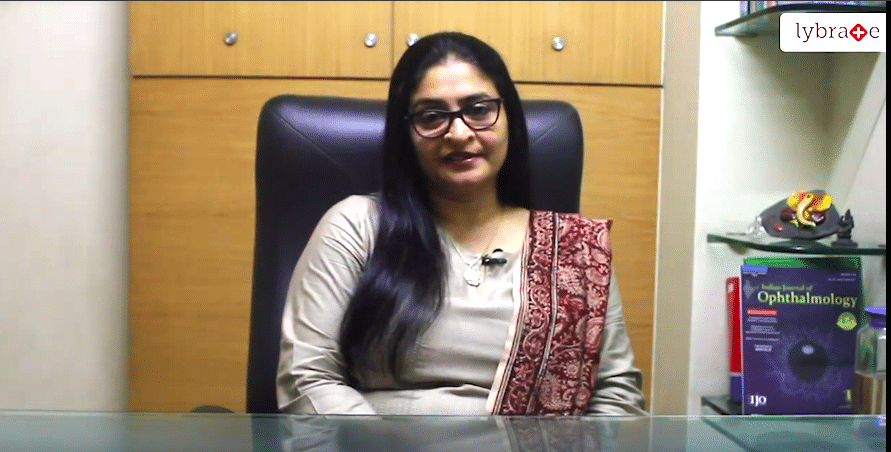
Hello,
I am Dr. Leena Doshi. Today we are going to talk about certain eye diseases which cause either partial or complete blindness and how you can take measures to prevent it also a few pointers on that. As all of you know eyes are very precious to us from the day we are born till the day we see the end of this world, we need to see the world very clearly and so we do need to take care of our eyes very well. A lot of factors which influence the eye health, for example there is weather, there's how you work, what do you eat, how you keep yourself fit, the diseases, the genetic makeup, there are a lot of things which do affect, certain factors are not in our hands but yes certain things we certainly can do for our eyes.
So I'm going to talk about or rather I'm going to categorize what are the different types of eye diseases which affect us, which cause partial or complete blindness into certain categories. You know most of them is usually what people do know is cataract, glaucoma, age-related macular degeneration and diabetes, these are the 4 which people mostly know, but then you do not know most of the others which also do cause blindness, so I'm going to categorize it according to age so that you can well relate to people in your house, people in your lives, your friends, family, relatives, you can relate that way.
So let us talk about beginning at infancy which I would say it starts at zero to one year, Now zero to one if you say that well I know it's a baby so what usually happens is what I would say here is, if your baby is born preterm and it in an incubator, yes this baby needs an eye check before the baby's out of the hospital because there's a certain condition called retinopathy of prematurity which affects and can cause blindness to the child so you do need a check-up at that point in time and if by chance you see that there's a white reflex in the eye, something is amiss with the eye, the eye is squinting, the baby is not following light, I mean light and not sound at all okay it's not that you clap your hands and then the baby's looking there no I'm not meaning that the baby is following you without sound if the baby is not following you then you need to go to the doctor and see the doctor. Feed the baby well as well, follow all the instructions of your doctor but if you see these things amiss yes you need to go and visit an eye doctor.
Next we'll come to preschool to the school-age group. Yes, they are too young to tell you anything at all but then yes there are a lot of things that can happen at this age which would be left as a permanent mark on their eyes because eye could be partially non-functioning, it is called as a lazy eye or amblyopia it is normally called but if you notice a squinting eye, if the child is sensitive to light, if the child is not focusing properly, if the child is not following what the teacher is doing in school, if the child is not taking notes in school properly and the child is continuously saying that I'm having headaches, I cannot read properly whenever I read I do get headaches, certain things which happen if there's photosensitivity or light sensitivity yes you need to go and see a doctor immediately. why so? yes because there could be a lot of refractive errors which are there. The errors would be in one eye, not in two eyes so that one eye might just go Lazy so that can be corrected only at this age so you need to take the baby or the child to the doctor.
Nutritional deficiencies do happen at this point in time, children at this age eat, start exploring new things, they're eating new things so in their doing that there's a lot of gastroenteritis or diarrhea which do happen then if the child is not eating really well, doesn't like certain things then they have only favored one particular kind of food like that does happen, the child will have nutritional deficiencies, vitamin A deficiency is very common, uncommon in the urban areas yes in the rural belt it is quite common you get malnourished children and yes vitamin A deficiencies lead to permanent blindness in children. Squints, yes again there could be squints at this age so the Squints also need to be taken care of plus if there is some developmental changes which do happen because of a genetic predisposition those things also could be affecting the vision of that particular child. So now we come next to the adult age group.
I am not going to categorize the adult age group. We could just take it as young, mid and senior citizens. We can just take all of it now there's a huge gamut out here now when I am talking of a huge gamut I mean your entire life is spread out here, so what I mean by that is yes you are growing, you're studying at this point in time, post studying you're taking up jobs, different kinds of jobs are there, your different types of professions are being taken up so all these things affect your eye. For example a child takes up professionally digital work so the continuous digital work is there that affects the child, they could be squints which is happening at this point in time, young children numbers keep going on increasing now the numbers especially the minus ones if they really go on too much there could be some degenerations happening in the retina, they could suddenly develop some holes out there or there would be retinal detachments out there.
Now these are going to cause blindness in that particular child so they would come up with that, then there are different psychological things which do happen so they are on medication, so all the medication, psychiatric medications also do affect thyroid and hormonal changes to affect the eye as well. As you grow older different professions come in place so they are also prone to injuries and injuries also can lead to partial blindness as you go ahead you could get some genetic disorders or diseases which you are prone to genetically like, for example there could be diabetes you can develop diabetes, it could be hypertension, there could be thyroid, there could be so many other diseases which would come up. Now if you also have a family history of glaucoma, the glaucoma could come up at that point in time now these are all blinding diseases or partially blinding diseases which need to be taken care of and you have to be aware that yes you need to go to a doctor and find them, not all of them have symptoms, not all of them can be diagnosed by you, not all of them could show up suddenly they could all gradually progress and ultimately lead to blindness, there could be systemic medications which you are on.
Now there are medications which continuously you are taking, you could be on steroids now long-term steroids do have a lot of effects on the eye, cataracts develop, there is glaucoma which comes up and over a period of time they get uncontrolled so it is very difficult that it can be managed. There is age-related macular degeneration I forgot about that yes that also comes up at a certain age, reading glasses do come up so it becomes really difficult that you cannot see, continuous work on the computers, if you are in a factory which is doing glass work there is a lot of heat out there now this continuous high heat, working in high heat causes a lot of problems, there could be sports-related injuries, so there are a lot of things which do happen in your life when you are an adult, so what is it that you as a person, I'm talking to you right now, giving you certain pointers that what is it that you can do so that you can prevent or sort of halt the progress or prevent the blindness from coming in? yes, the most important is diet, you need to have a completely balanced diet, adding fruits, nuts, fresh vegetables to it. A balanced diet takes care of the eye very well.
Secondly keep your diabetes and hypertension under control why so? because diabetes uncontrolled is gradually going to cause effects in your eye and the retina and you might have diabetic retinopathy and you might go blind because of that because of continuous treatments which keep happening. Now diabetes and blood pressure also have other effects on the body. Now you could land up having a stroke, a stroke is going to cause blindness, your eye may be completely normal but what the brain receives that area of your brain could be completely dead so you could stop seeing there. Now age-related macular degeneration will give a right central spot of blindness now that's why you need to have a good balanced diet, which is rich in antioxidants and vitamins so that's what you need to do, have a diet which is balanced. Exercise well so that you can keep yourself fit, your diabetes is taken care of, your blood pressure, your heart disease all these things are well under control. There could be psychiatric illnesses which are there.
Now these people are usually prone for glaucoma and you may not be aware of it. There is tuberculosis, tuberculosis medications can cause blindness so these are all reversible if diagnosed early and the medication stops so that further progression is stopped, so what you need to do is first a balanced diet, keep yourself fit, see that your systemic medications are well taken and your diabetes, blood pressure, your heart disease, thyroid all of them are well under control and last but not the least yes you need to go and have regular eye checks with your eye doctor, reason being that you are not going to be able to diagnose sitting at home that something is going wrong with you, certain diseases gradually gradually grow and cause blindness overnight nothing does happen but if an expert looks into your eye and see that there's something wrong, at least a diagnosis is made well in time so that we can prevent whatever blindness you are likely to get in the future if things are uncontrolled. As I always say, a stitch in time saves nine. If you want to know any more about this you can please connect with me at lybrate at lybrate,.com.
Thank you so much
Doctor in Roshni Eye Hospital
Doctor in Roshni Eye Hospital
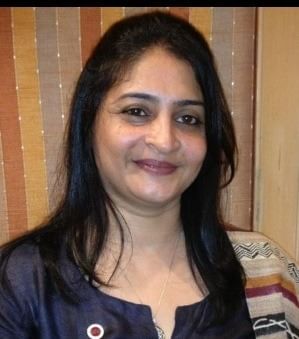
Dr. Leena Doshi
Patient Review Highlights
Very helpful
7 reviewsThorough
1 reviewsknowledgeable
3 reviewsWell-reasoned
1 reviewsInspiring
1 reviewsCaring
2 reviewsRoshni Eye Hospital Reviews
Navin Chamankar
Sep 01, 2023Good
Verified
Sep 14, 2018very friendly nature